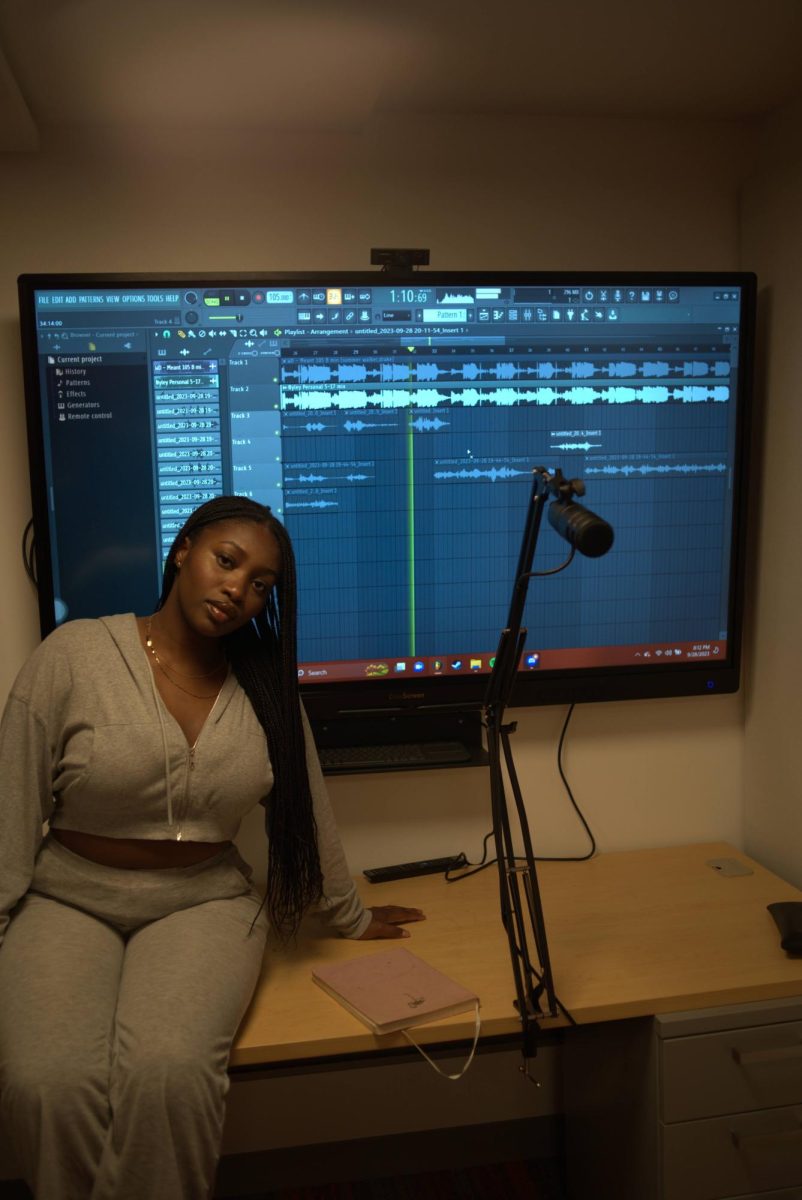Ariana Grande’s seventh studio album, “Eternal Sunshine,” was released last week on March 8. Marking her first release since her “Positions” LP in 2020, the project serves as Grande’s return to the music canon after months of making headlines for her relationship turmoil. “Eternal Sunshine” is a brilliant continuation of Grande’s pop R&B streak, yet it stands out from her previous work due to its deeply personal lyrics and controversy-laced themes. Inspired by the sci-fi romance film “Eternal Sunshine of the Spotless Mind,” Grande’s seventh studio length endeavor is a concept album about forgetting a breakup and starting a new relationship.
Since the last time Grande released new music, she has been the subject of constant media attention. In Nov. 2021, Grande was cast as Glinda in Jon M. Chu’s film adaptation of the Broadway musical, “Wicked.” That same year, Grande privately married real estate agent Dalton Gomez, which was followed by an extremely publicized divorce in 2023. This was followed by a new relationship with her “Wicked” co-star Ethan Slater, which once again propelled the pop star into the media spotlight.
When critically analyzing a piece of media, it usually is best to try to separate any controversies surrounding an artist to objectively judge the product on its own. Yet in this case, it is almost impossible to separate the music from the artist when “Eternal Sunshine” directly relates to the artist’s personal struggles. It feels almost intrusive at times, inviting the audience into some of her most personal thoughts.
In the album, Grande never shies away from addressing the details of her situation. The album’s lead single “yes, and?” showed fans that Grande had no plans to stay quiet about the media’s intensely thorough analysis of her divorce, as well as the beginning of her newest relationship. She takes a firm stance against the publicity: “Your business is yours and mine is mine / Why do you care so much whose **** I ride?”
While “yes, and?” suggests a ballroom-inspired dance album in its sound, the song is the only distinctly non-R&B part of the record. Grande challenged herself to create an album with more substance and depth than her previous LP, “Positions,” a record that felt like it was created to be TikTok sound bait, cheapening the professionalism frequently associated with Grande’s music. “Eternal Sunshine” delivers what Ariana Grande does best: showing off her heavenly vocal range over chill backing beats.
The album’s second track, “bye,” is the closest thing to the dance pop sound of “yes, and?”. Grande uses the song to empower herself to get through the rest of the album, accepting her divorce and embracing the newfound freedom that comes with being single. She also establishes that this isn’t her first rodeo in the media circus that surrounds the daily lives of A-list celebrities. She sings, “This ain’t the first time I’ve been hostage to these tears,” understanding that she now has the resilience to come out stronger on the other side of controversy.
“Eternal Sunshine,” the title track of the album, sees Grande open up about her struggles with anxiety and how her recent run-ins with the press have had her questioning her sanity. She describes an anxiety attack with the lyrics, “Deep breaths, tight chest / Life, death, rewind.” With this song she chooses to be vulnerable about a part of her life that is generally seen as shameful, showcasing that, beneath the celebrity image, she is a human being.
Around halfway through the track list, Grande takes a break from the apologies and directly addresses everyone who has engulfed themselves in the Grande-Slater relationship drama. The song “true story” is a sarcastic, hyperbolic track where Grande indulges in the media’s image of her as a villainous homewrecker. She sings, “I’ll play the villain if you need me to / I know how this goes, yeah / I’ll be the one you pay to see play thе scene / Roll the camеras, please,” satiating anyone who came into this album looking to see Grande as the bad guy.
Grande concludes the album with a streak of catchy and rhythmic breakup songs that are sure to define the end of many fans’ relationships over the course of the next year. “We can’t be friends (wait for your love)” stands out as the most subtly heartbreaking song in this run, as Grande adopts a softer vocal style to bring home the song’s theme of wanting an ex to stay in your life, knowing it’s not healthy.
“Eternal Sunshine” stands out as Ariana Grande’s most sophisticated body of work since “Thank U, Next” in 2019. This album feels like it was created for the music, not the cash-grabbing attempts to go viral that plagued “Positions.” Yes, the controversies surrounding Grande’s personal life are ever present throughout this album, yet the music serves as a professional endeavor that will inevitably go down as one of Grande’s best.
Gustavo Atencio-Flores can be reached at [email protected].




















